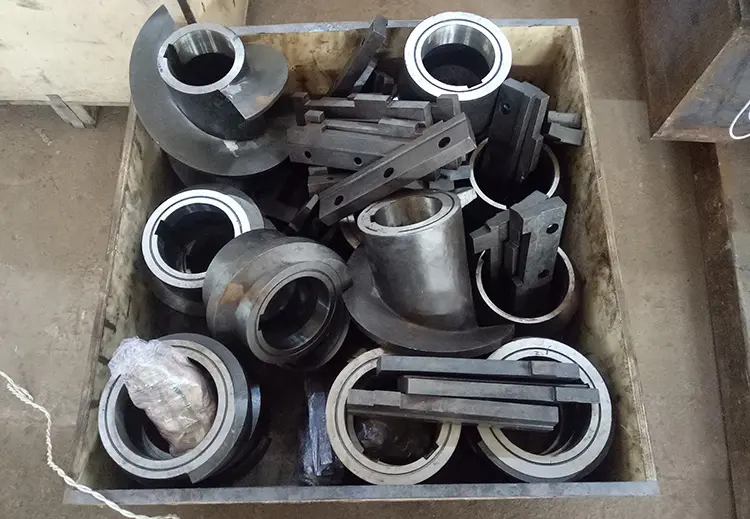Aug . 04, 2024 01:48 Back to list
Manufacturer of High-Quality Animal Oil Refining Equipment for Efficient Production Processes
The Role of Animal Oil Refining Machine Manufacturers in Sustainable Food Production
In today’s rapidly evolving food industry, the demand for high-quality oils, including animal fats, has grown significantly. As consumers become more health-conscious and environmentally aware, the need for efficient and sustainable processing methods has become paramount. This is where animal oil refining machine manufacturers play a crucial role, providing the technology necessary to extract, refine, and process animal oils responsibly and effectively.
Animal oils, derived from various sources such as beef, lamb, pork, and poultry, have been an integral part of human diets for centuries. These fats are not only a source of flavor but also provide essential fatty acids and other nutrients beneficial to health. However, their extraction and refining require sophisticated machinery to ensure that the oils produced are safe, nutritious, and free from impurities.
Animal oil refining machines are designed to perform several critical functions rendering, degumming, deacidification, bleaching, and deodorization. Each step is essential to produce a high-quality final product that meets both food safety standards and consumer preferences.
Rendering Process
The refining process begins with rendering, where raw animal fat is heated to separate the fat from the protein and moisture. Manufacturers employ specialized rendering machines that utilize controlled heat to efficiently break down the tissues while preserving the quality of the fat. This step is crucial as it lays the foundation for any further processing.
Degumming and Deacidification
Once the fat is extracted, the next steps involve degumming and deacidification. Degumming removes phospholipids and other impurities that can affect the oil’s quality. Deacidification, often conducted using neutralization processes, helps eliminate free fatty acids that can lead to rancidity. The precision of animal oil refining machines is vital in these stages to ensure minimal loss of the oil's nutritional properties.
animal oil refining machine manufacturer

Bleaching and Deodorization
Bleaching and deodorization are the final stages in the refining process. Bleaching involves the use of absorbent materials that eliminate color pigments and residual impurities, resulting in a cleaner product. Deodorization, on the other hand, removes volatile compounds that can impart undesirable flavors or odors. Advanced refining machines incorporate steam distillation to achieve these results, producing a neutral-flavored oil that is appealing to consumers.
Sustainability and Innovation
Animal oil refining machine manufacturers are increasingly focusing on sustainability and innovation in their designs. By incorporating energy-efficient technologies and waste management practices, these manufacturers are helping to minimize the environmental impact of oil processing. Moreover, advancements in automation and control systems allow for better monitoring of the refining process, ensuring consistency and quality.
As the food industry continues to evolve, the role of animal oil refining machinery becomes even more critical. Manufacturers are not only responsible for producing quality machinery but also for adhering to regulatory standards that ensure the safety of animal-derived products. Collaborations with food scientists and technologists are fostering innovative solutions that meet consumers' health and sustainability demands.
Conclusion
The importance of animal oil refining machine manufacturers cannot be understated in the context of sustainable food production. They provide the technology and expertise needed to produce high-quality, safe, and nutritious animal oils that align with modern consumer expectations. As we move toward a more health-conscious future, the innovations and practices developed by these manufacturers will play a fundamental role in shaping the landscape of food production globally.
-
High-Efficiency Peanut Oil Refined Machine for Quality Oil Production Leading Exporters & Companies
NewsJul.08,2025
-
High Efficiency Sunflower Seed Oil Press – Leading Cooking Oil Press Machine Factories & Suppliers
NewsJul.08,2025
-
High-Efficiency Soybean Oil Press Machine – Leading Exporters & Reliable Companies
NewsJul.07,2025
-
High-Efficiency Seed to Oil Extractor – Reliable Extraction Machinery for Your Business
NewsJul.07,2025
-
High-Quality Pressing Screw of Oil Expeller for Efficient Oil Extraction Leading Exporters & Manufacturers
NewsJul.06,2025
-
High-Efficiency Essential Oil Extraction Machine Trusted Exporters & Companies
NewsJul.06,2025
